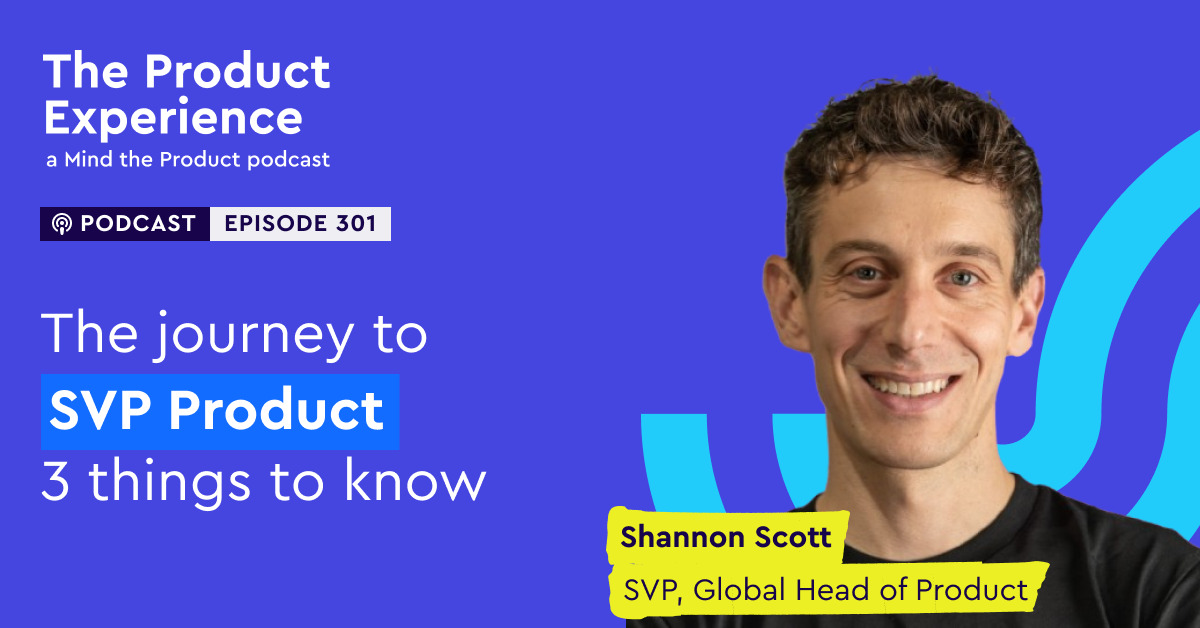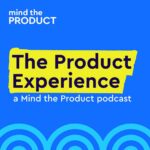Talk to any hiring manager and they’ll tell you how difficult it is to hire a product person. It's something that should be straightforward on the face of it: the job market for PMs has been in the doldrums and all the tech layoffs and hiring freezes of recent times mean there are lots of talented people looking for jobs.
Hiring product managers remains hard however because the role is broad but not standardised - product is “done” differently everywhere! - and it’s hard to assess someone’s product sense at an interview. It’s a cross-functional role that is culturally sensitive, so cultural fit is paramount. In short, success as a product person depends as much on how you work as what you know, so hiring the right person is bound to be tricky. As Ken Norton says in his seminal essay, How to hire a product manager: “Product management is fundamentally about thinking on your feet, staying one step ahead of your competitors, and being able to project yourself into the minds of your colleagues and your customers.”
We all know what happened during the last few years. Product managers were hired like mad during the pandemic - as Meta’s Mark Zuckerberg said, a lot of companies overbuilt during Covid, and then things went back to the way they were. Post-pandemic, they realised they had overhired and this led to the brutal tech layoffs we’ve seen over the past couple of years. And let’s not forget that the barriers to application have lowered dramatically in recent times. Current technology and platforms like LinkedIn make it very easy to apply for a job, so people can now put themselves forward for any job, whether or not they have the appropriate skills or experience to do so. Couple these factors with continuing economic uncertainty, increased investor caution about putting money into tech startups, and the market has been pretty tricky to navigate for any product manager looking for a job.
For hiring managers, the increase in candidates to choose from creates a few issues. It means the hiring process slows down, and you run the risk of overlooking suitably qualified candidates. Plus the attendant decision fatigue of dealing with so many applications can lead to mistakes and an over-reliance on bias. Overall, recruiting PMs has become a poor experience for hiring managers, a poor experience for candidates, and one which can potentially damage both the employer’s brand and future applicant pools.
The applicant tracking and filtering systems in common use also have their pros and cons. They deliver speed and efficiency and can process hundreds of applications in minutes. They also deliver consistency in that they apply the same rules to all candidates, and can efficiently weed out specific technical skills or experience. But they can lead to an over-reliance on keywords and will likely miss potential candidates with unusual backgrounds and potential.
Says Chris Mason, Director of executive search company Intelligent People: “If you advertise a role, hundreds of people will apply and that creates a problem. There are tools that help to give a first sweep of candidates and identify some basics like ‘is this actually a product manager’.” He suggests using tech to do this basic first sweep but then handing over to humans, who can also pick up nuances and outliers with potential, and also because “sometimes candidates are just not very good at writing CVs. We see it all the time, even with director and C-level candidates”. Many candidates don’t market themselves effectively and simply talk about the work they’ve done rather than the impact and effect of this work, so it’s much harder for the hiring manager’s to assess their suitability for a role. Says Chris: “Sometimes candidates just get it and they have an incredible CV, but that's probably just 5% of the CVs we see.”
He adds: “We’re also seeing AI doing interviews and that’s really problematic.” He says there are tools available that video a candidate and then assess their interview using AI. “Candidates are horrified by it and hate it,” he says. “It’s the thought of being interviewed and potentially being rejected by some software with no human interaction at all. It creates a trust problem.”
The use of AI can be quite insidious as well - for example, a networking and recruitment platform won’t show you all product managers that might meet your criteria. As Chris explains, AI tries to understand what you're looking for and only shows you the people it thinks are right for your role, whereas you might want to be able to look at and evaluate everyone, including those people who might not be looking for a new job.
Francesca Jackson, Manager - Product Management for the UK and Europe at 3Search, thinks the job market for product managers is now stabilising, but says there’s been a big dilution in what the word Product means, to the point where it's hard to find good product managers. She says: “There are loads of companies calling people product managers who are not product managers, but project managers or domain expertise managers.”
Francesca also notes that there’s been a shift in the skills expected of a product manager. Commercial awareness and an understanding of revenue generation are now prerequisites for product managers, she says, whereas in years past, product management might have meant “just make it pretty and make it work. Now it needs to generate revenue".
Then of course, there’s the inescapable reality of AI in product management. As Lenny Rachitsky recently posted, AI product management roles - and AI-related roles in general - are exploding. Chris Mason comments that the majority of product vacancies are looking for AI experience, and candidates are rapidly skilling up. “Everyone gets how important AI is,” he says. “Increasingly, companies are building AI into their products, so it is a requirement [for job seekers]. Now I think the question is, do they have genuine AI experience and what have people actually done with it?” There’s a world of difference between genuine AI and the likes of rebadged ChatGPT, so hiring managers want to understand whether candidates have built something from scratch and, if they have, what value it created.
Has the hiring landscape changed in other ways? Sector and domain expertise have become very important to hiring managers over the past couple of years, Francesca says, this risk aversion presumably arising from the post-pandemic downturn. She says: “If you work in FinTech, you’ve got to have FinTech experience. You worked in retail, you need to have retail experience. Trying to break that is my biggest problem at the moment with hiring managers.”
Hiring is a difficult landscape to navigate both for people looking for a job and for those looking to hire and one that serves neither side well at the moment. So how do hiring managers tackle it?
Rico Surridge, for example, until very recently Chief Product and Technology Officer at Which?, has hired hundreds of product people in the course of his career. He feels CVs are of limited value in assessing product management skills and he stresses the importance of deeper conversations. He says: “You can’t really find out if someone is a product manager - and does all those things that we mean when we talk about a product manager - until you actually speak to them. Years ago, when I was at the BBC, if we wanted to hire for a mid-level product manager role, we would physically talk to well over 100 candidates.”
He points out that interviews don’t need to be hour-long events and has used techniques like 10-minute phone calls to do rapid filtering of candidates in the early stages of the recruitment process. “Ask a question and you can get a sense quite quickly as to whether they're really a product person,” he says.
Rico points out that it’s now easier to gauge someone’s tangible experience and competence because there’s more commonality of language and experience than there was 20 or so years ago: “We didn't used to talk about many of the techniques that are used by product managers today. Now you can say, have you done any Wardley mapping? Have you done any user story mapping? What events have you been to? Are you going to ProductTanks? Do you read Marty Cagan's blog?” The responses to such questions will give you a really good idea of whether someone will be a good candidate, he says.
Intangibles like soft skills and product mindset are harder to gauge. Rico likes to ask questions that can give him a sense of someone’s curiosity. For example, when interviewing for junior to mid-level product managers, he has sometimes put a pencil, a Sharpie, a board marker and a biro down in front of a candidate, asking them to pick one and explain why. “Someone with a non-product mindset would just pick one and start talking about it,” he says. “Someone with a bit more gut instinct and awareness of context might start asking questions about what I want them to do with it.” It’s the kind of question that can give you some insight into someone's curiosity, gut instinct and communication style, he says.
Cinzia Ricciardone is a fractional CPO and a one-time Product Director at Smart Recruiters with a Masters degree in personnel and development. She comments that we're all here to learn. She’s not concerned about candidates having concrete experience with AI in particular, saying: “There are tons of courses, free courses, as long as people are willing to take their time and learn. I always look for curiosity first and foremost.”
Cinzia also comments that she finds it can be helpful to hire people from a different industry because they can offer a fresh approach. “But I know many leaders would not agree with me,” she says. “I think it depends on the product you have to build, the urgency that you have, and the level that you're hiring for. But the more experience you have, the more you can recycle, and very often it is those people who have ideas that are a bit outside the box.”
Commercial acumen is also a quality Rico looks for - not just commercial knowledge and awareness, which can be taught. He says: “You've got to have some underlying commercial acumen and drive, I think, to be really successful and credible in a modern product role.”
Ultimately Rico is interested in learning animals, he says, people who want to discover the best way to solve customer problems. “In truth, I don't look for too much at all. It always comes back to, are they customer first? Are they problem first? Are they curious? Are they collaborative people?”
Cinzia Ricciardone concurs, and concludes that there are three certain qualities in a high-performing product manager: attitude, aptitude, and willingness to learn. She says, “Technology changes. If I hire you only based on your experience, when something new comes up and you cannot learn it fast enough, or you're not interested in learning, what am I going to do with you?”
UK hiring managers reveal the realities of hiring product managers







